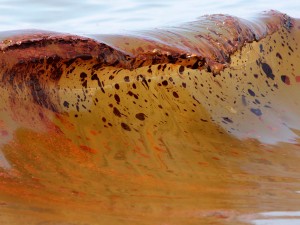
Last month, the House Committee on Natural Resources met to discuss whether and how safety standards have improved since the catastrophic B.P. oil spill in 2010, an explosion that occurred 50 miles off the coast of Louisiana and has been called “one of the worst environmental disasters in U.S. history” in a report issued last June by the U.S. Chemical Safety Hazard and Investigation Board. Those who testified at the hearing included the chairman of biological oceanography from the University of Florida, the U.S. Coast Guard, an Interior Department official, and three representatives from the oil industry, including the American Petroleum Institute.
Lessons Learned from B.P. Oil Spill?
The tragedy in April 2010 killed 11 men and sent several million barrels of oil into the Gulf of Mexico, causing irreversible damage to the environment. Yet, in the five years since the disaster, not a single law has been passed to improve the safety of offshore drilling, even though the National Commission on the Deepwater Horizon Oil Spill and Offshore Drilling released an in-depth report making several important recommendations to protect human lives back in 2011. There have been no lessons learned the from B.P. oil spill. This lack of regulations protecting the public places workers, landowners, businesses owners, and other citizens at risk from health issues associated with exposure to crude oil.
Deliberate Misconduct and Gross Negligence
In September 2014, a federal judge ruled that BP was responsible for the oil spill and had to pay penalties under the Clean Water Act in addition to B.P. Oil spill claims brought by those who were injured or lost their loved ones, those whose business interests were destroyed by the spill (fishermen, landowners, seafood companies, etc.) and cleanup costs. Specifically, U.S. District Judge Carl Barbier found that B.P had acted with “conscious disregard of known risks” and described the company’s actions as “reckless.”
Toxic Exposure to Crude Oil
You may be surprised to learn that the U.S. is the third top crude oil-producing country in the world. Oil spills leave lasting impacts, beyond just those with obvious injuries and families that have suffered from wrongful death.
You may be exposed to crude oil if you live near an oil refinery, if there is a spill nearby (regardless of its size), or even by eating contaminated seafood. You can even be exposed to these chemicals by visiting the beach, and, of course, if you work in an oil refinery or on an oil rig.
These chemicals have serious effects; they can cause damage to your respiratory system, eyes, skin, headaches, neurological disorders, etc., all of which can develop into more serious conditions, such as cancer.
Contact the Environmental Hazard Law Firm of Harrell & Nowak
Having spent years litigating against bad actors in negligence claims, Harrell & Nowak are seasoned environmental hazard attorneys located in Louisiana. Specifically, Eric Nowak and Shirin Harrell were appointed as class counsel in Marshall vs. Air Liquide, an environmental hazards lawsuit in Civil District Court for Orleans Parish.
If you have fallen ill because of toxic chemical exposure, contact the lawyers at our New Orleans firm, also serving Metairie, Kenner, and nearby communities.
